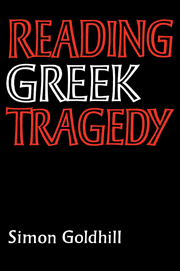Book contents
- Frontmatter
- Contents
- Preface
- 1 The drama of logos
- 2 The language of appropriation
- 3 The city of words
- 4 Relations and relationships
- 5 Sexuality and difference
- 6 Text and tradition
- 7 Mind and madness
- 8 Blindness and insight
- 9 Sophistry, philosophy, rhetoric
- 10 Genre and transgression
- 11 Performance and performability
- Bibliography
- Index
1 - The drama of logos
Published online by Cambridge University Press: 08 February 2010
- Frontmatter
- Contents
- Preface
- 1 The drama of logos
- 2 The language of appropriation
- 3 The city of words
- 4 Relations and relationships
- 5 Sexuality and difference
- 6 Text and tradition
- 7 Mind and madness
- 8 Blindness and insight
- 9 Sophistry, philosophy, rhetoric
- 10 Genre and transgression
- 11 Performance and performability
- Bibliography
- Index
Summary
The Linguistic Turn
R. RORTY, book titleLike so many modern philosophers, literary critics and novelists – heirs to ancient questions – fifth-century B.C. writers show an ‘intense interest in the limits and possibilities of language’. This interest connects numerous writers across numerous genres and disciplines. In the texts of philosophy, the concern with language not only gives rise to the development of linguistic study itself, but also is reflected in the prime place of logos, dialectic, rhetoric – the role of language itself – in the development of philosophical systems from Heraclitus to Aristotle. Modern occidental philosophy, for all its historical turns, is still working through Aristotelian linguistic categories and distinctions. It is the fifth century too that offers the first formal studies in rhetoric, the teaching and practice of which dominated education for two thousand years and more, and has recently been the focus of much of the most iconoclastic modern philosophical and literary criticism.
In a society dominated institutionally by the assembly and the lawcourts, the discussion of the best way to use language (persuasion, argumentation, rhetoric) is an issue of considerable social and political importance, an issue brought into sharp focus under the pressure of the sophists' new methods of manipulative argumentation. When the comic poet, Aristophanes, in the Clouds, his satire on modern thought and education, wishes to mock the processes of contemporary intellectual debate, he composes a dramatic exchange between personifications of the old, just logos (‘argument’, ‘way or system of thinking’, ‘reason’) and the new, unjust logos which focuses particularly on the ability of the new logos to make the weaker case appear stronger.
- Type
- Chapter
- Information
- Reading Greek Tragedy , pp. 1 - 32Publisher: Cambridge University PressPrint publication year: 1986



